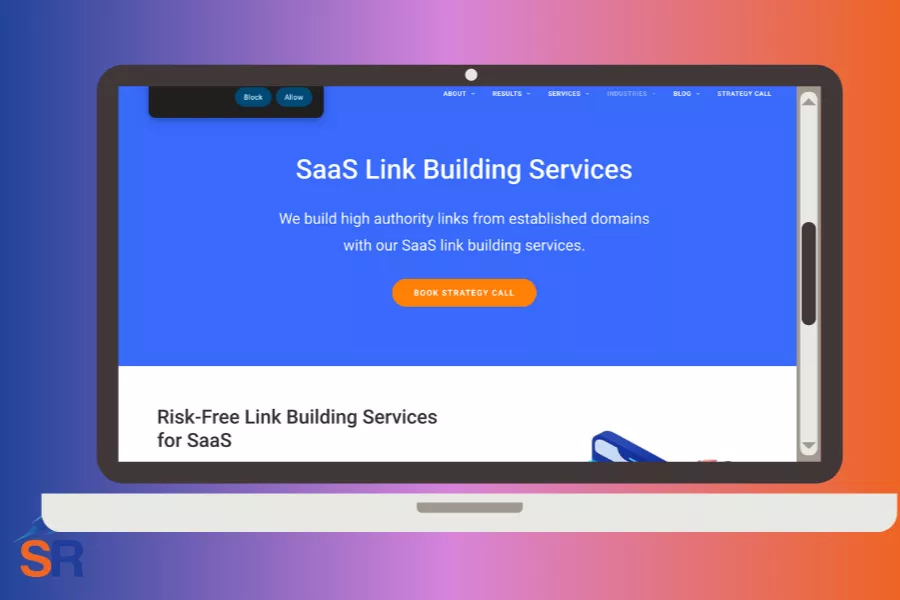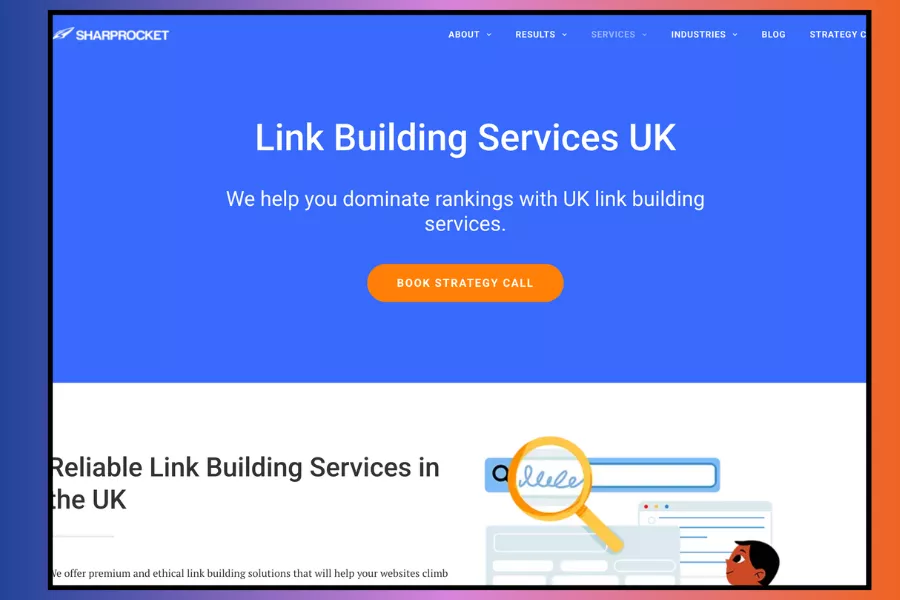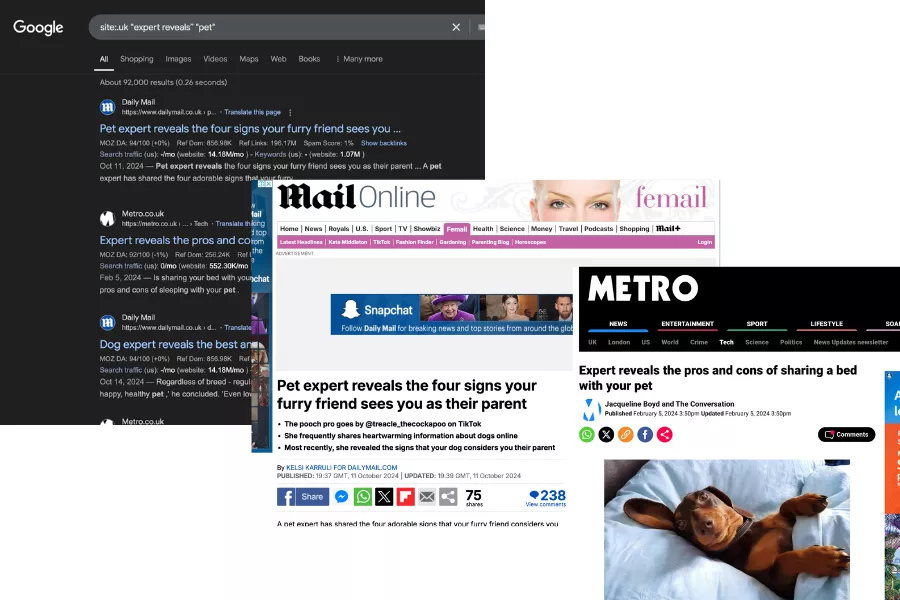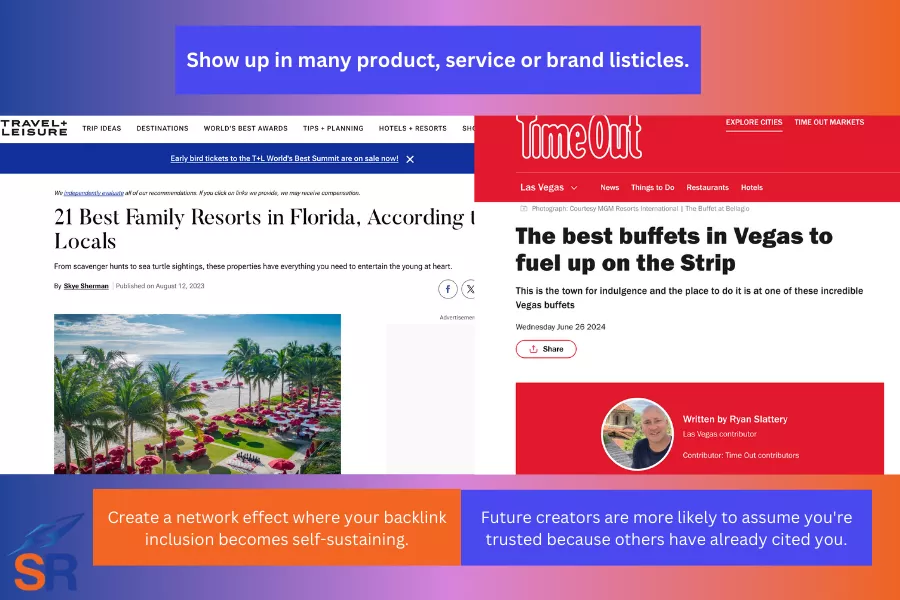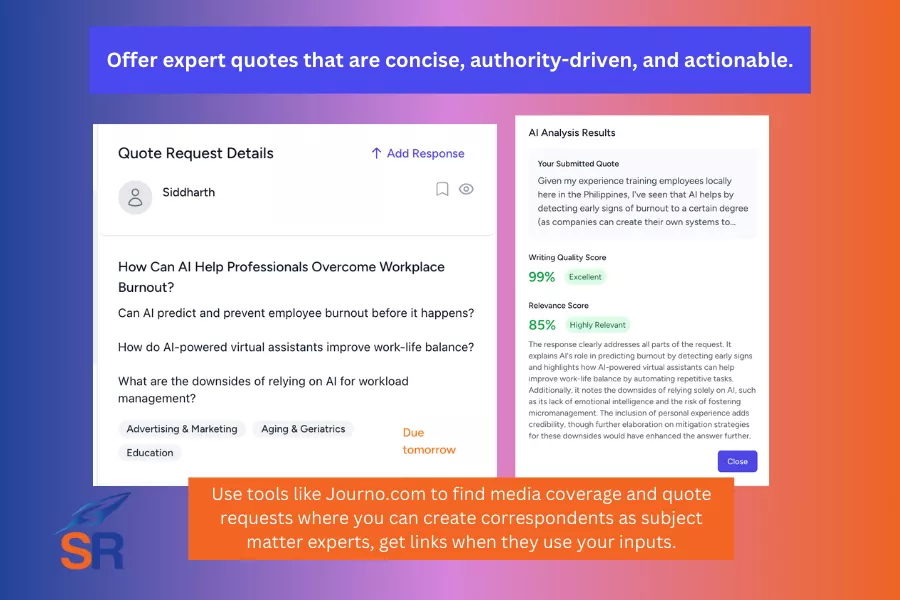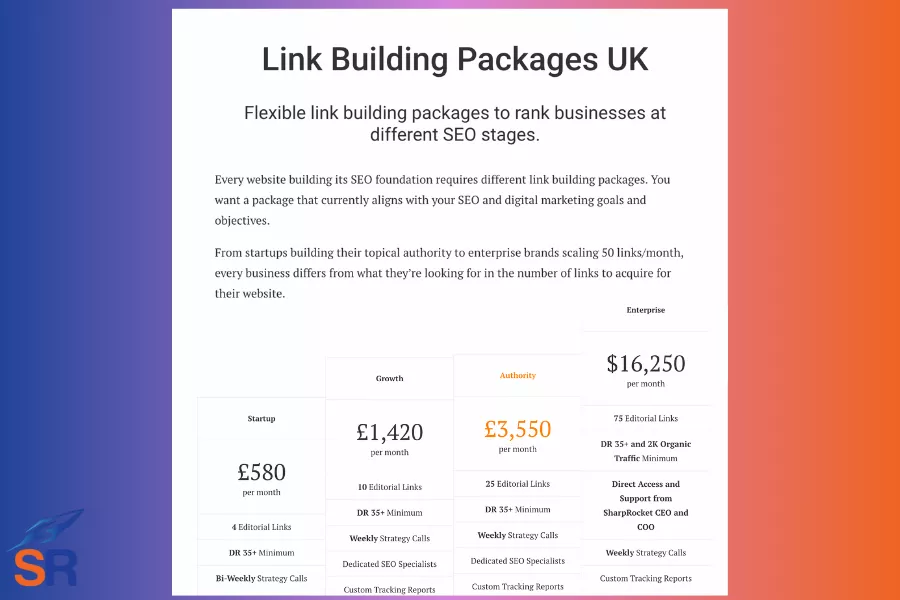As considered to be the UK’s best link building agency, the most common question we’ve been asked is what are the best link building tools for SEO we use to scale our campaigns.
In this 2026 review, we’re sharing our full list.
These are the tools we rely on daily legwork to find quality link prospects, manage outreach, track results, test new link building strategies, and improve results across our clients’ link building campaigns.
For a quick look, here’s our top pick for each key task:
Contents
ToggleBest Tool for Competitor Link Research, BackLink Analysis, and Link Prospecting: Ahrefs
Ahrefs is our top choice for getting deep insights into your competitors’ backlinks. With their tool features like Site Explorer, Link Intersect, and Content Explorer, you can find highly relevant, authoritative sites linking to others in your industry and quickly build a list of targets. It’s a good starting point for high-impact prospecting and scalable link building campaigns.
Best Tool for Finding Emails: Hunter.io
Once you have a solid list of link targets, Hunter.io helps you find accurate email addresses linked to each domain. Whether you’re searching by domain or by name and company, Hunter makes email discovery quick and reliable. It also verifies email deliverability to reduce bounce rates in email outreach campaigns.
Best Tool for Email Outreach: SmartLead
SmartLead lets you send personalized cold emails at scale. With unlimited inbox rotation and a unified inbox for all replies, it keeps your outreach organized and effective. It’s built for link building teams that care about deliverability, automation, and landing high-quality link placements.
7 Best Link Building Tools For SEO (Our Top Picks)
Below are some of the best link building tools for SEO that we personally hand-picked:
1. Ahrefs (starts at $129/mo)
Ahrefs is our top-picked link building tool as an agency, considering it is highly useful for a wide range of tasks in link building.
It offers one of the industry’s largest and most updated backlink databases. It assists in most of the tedious tasks of prospecting and analyzing the types of backlinks of competitors and other relevant sites.
Let me walk you through some of the tasks we use it for:
Competitor Backlink Research
Feature: Site Explorer
One of the best ways to start your link building campaign is to look at where your competitors have acquired their backlinks, especially those currently ranking for your target keywords. It shows you where these links come from and helps you generate ideas on what specific link building strategies have proven to work and which ones you can replicate for your campaign.
Ahres helps you conduct thorough competitor backlink research. The Site Explorer feature shows you all the backlinks pointing to any domain, URL, or subdomain. Whether you want to reverse the entire domain’s links data or a specific page/content, you’ll have it assembled with Site Explorer.
The best part of Ahrefs is its ability to filter backlinks based on your desired link metrics. And if you’re a UK newbie link builder, you can choose the “Best Filters” so it would do the filtering for you on websites that are do-follow, in-content, DR30+, 500+ organic traffic, and less than 200 external links on a page – it’s the default setting, but you can customize it to fit your needs.
For any link building campaigns we start, I filter sites based on DR and traffic alone (DR30+ and organic traffic of 500+). With that quick analysis, I can decide if exporting the list, analyzing it further, and reaching out to the same link prospects is worthwhile.
I dig deeper into some links for advanced link building strategies by filtering them based on link type, destination page, or number of referring domains. For instance, if I want to see listicles (for SaaS link building), I’ll filter links from external links (7 to 30).
Another example is filtering sites to homepage links to find branded mentions (with links) or valuable links through digital PR campaigns (which mostly link to brands’ homepages).
Discover Link-Worthy Content Topics
Feature: Content Explorer
Creating linkable assets starts with assessing which topics are link-worthy. This means that when you start publishing and do a little bit of outreach, you’ll have chances of earning backlinks from target publishers.
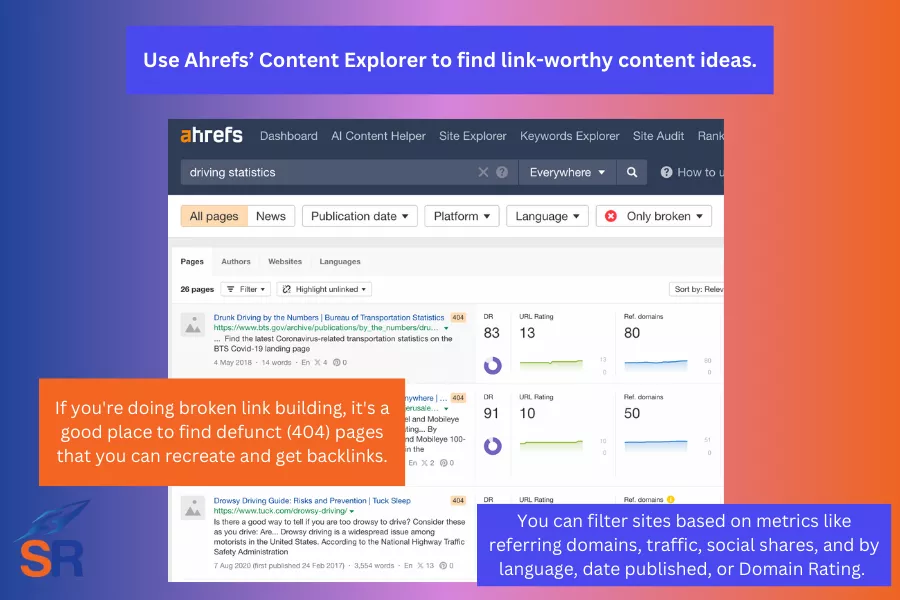
With Ahrefs’ Content Explorer, you can search for any keyword and see pages that earn the most links. You can filter sites based on metrics like referring domains, traffic, social shares, and by language, date published, or Domain Rating.
For example, if you want to search for industry-related topics, you can search for “statistics” and “topic” and filter them by referring to domains (>50), English language, and publication dates from the past year.
If you’re doing broken link building, it’s a good place to find defunct (404) pages that you can recreate and get backlinks by either reaching out to publishers who linked to the dead page or finding new links pages that are topically relevant to your republished content.
Find Link Prospects That Haven’t Linked To You
Feature: Link Intersect
When Ahrefs launched this feature years ago, I was one of the first SEO specialists to try it, and I knew it would be one of the best features of Ahrefs. Rightfully, it did so, as Link Intersect allows you to compare your site to competitors and shows domains that link to them but not to you. Other SEO tools haven’t replicated this invaluable feature at the time of this writing.
This task alone, doing link intersect, cuts prospecting time in half (even 70%) by pointing you to sites that are clearly open to linking to similar content or businesses. If pages link to 2 to 3 of your highly relevant competitors, they would also link to you, assuming you have a similar or better value proposition in your email outreach.
Reclaim Broken Links and Lost Opportunities
Feature: Broken Link Checker
Link decay happens when one of your links is broken. Either the hosted page removes your link, or it is removed by error or by purpose. This is often the case with many of the websites that are earning links.
Besides actively pursuing links every month, it’s a good practice to look at your site’s broken links and see which ones you can recover. Given that you’ve tried to get those broken links in the past, it would be worthwhile to retrieve them with a quick nudge in your emails.
Track Your Backlinks
Feature: Backlink Alerts
There are a handful of free alert tools, like Google Alerts, but if you purchase Ahrefs, take advantage of its Alerts feature.
You can set up email alerts for new or lost backlinks to any domain. Ahrefs notifies you as links appear or disappear, keeping your campaigns updated in real-time. So, you can either follow up with lost backlinks to reclaim them (as I mentioned earlier) or replicate the strategy that allows you to earn new passive links (without doing any manual outreach).
SharpRocket’s Take on Ahrefs:
As a link building agency in the industry for over a decade, we’ve used Ahrefs for every possible task related to link acquisition. It is a powerhouse SEO suite as it also assists in SEO audits and keyword research, making it cost-efficient for agencies to have it in their SEO arsenal.
The only caveat is its starting price. For the UK’s newbie SEO professionals or starting SEO agencies, $127/mo may be too steep, especially if you’re still building your client base or working with limited budgets.
It’s smart to start with lighter tools or use Google extensively for link prospecting or other free link building tools that cover the basics of using Ahrefs. Once you begin scaling and need deeper backlink insights or faster and more streamlined processes, investing in Ahrefs becomes a more justifiable and high-impact investment.
2. Hunter.io (Free + starts at $34/mo)
Discovering and vetting relevant and high-quality link prospects is only half the job. The other half is finding a way to contact them. There are many email finder tools (and we’ve tested most of them), but we couldn’t find one that is of maximum use with Hunter.io.
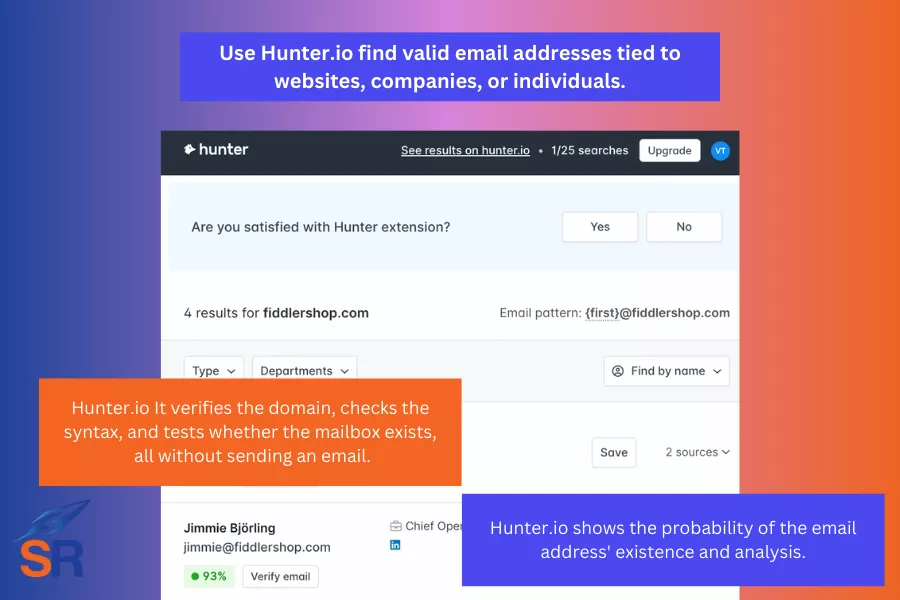
The best use of Hunter is that it helps you find valid email addresses tied to websites, companies, or individuals. Instead of manually searching for the contact person’s email using Google or X search, you can click on the Hunter Chrome extension, which instantly gives you the available corporate emails.
The accuracy of finding emails for outreach is essential in ensuring you get positive responses in email, compared to randomly emailing non-corporate emails (which leaves you with no chance of responses).
Hunter is the best choice for targeted link building that caters to editors and specific departments of companies. It includes names, job titles, and departments, providing you with ready access to decision-makers and editors without wasting hours of time.
Another overlooked feature of Hunter is that it checks for deliverability in real-time. It verifies the domain, checks the syntax, and tests whether the mailbox exists, all without sending an email.
Email verification is crucial to reducing bounce rates, avoiding spam folders, and protecting your domain’s sender score (though most link building agencies use a domain similar to their clients’ domain for outreach to avoid flagging the real brand domain’s sender score).
If you’re a little nerdy, Hunter shows the probability of the email address’s existence, which gives you the confidence that it is the actual email of the person you want to reach out to.
SharpRocket’s Take on Hunter:
If you’re doing a handful of link building campaigns, Hunter is ideal for solo SEO specialists or early-stage SEO agencies to streamline their process for finding email contacts (which, in our experience, consumes most of the link building efforts).
Its paid pricing of $34/mo saves you hours of manually searching for the right email address, which you can instead spend on major link-building tasks.
3. Journo (starts at $49/mo)
If you’re monitoring digital PR campaigns and want to launch one for your website or for an agency client, you need tools to facilitate strategies such as expert commentaries, data-driven PR, and reactive PR.
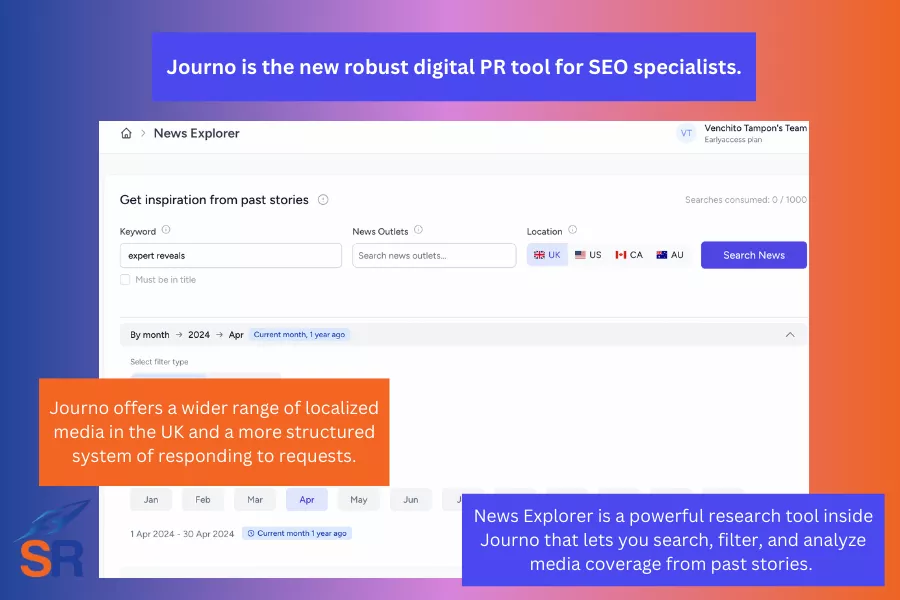
After HARO’s shutdown, many PR professionals and SEO specialists have been looking for reliable alternatives to help them offer real media connections.
Fortunately, we have Fery Kazsoni of Search Intelligence, who’s in the nitty-gritty of digital PR and recently launched his digital PR platform, Journo.
Unlike HARO, which is heavily US-centric focus, Journo offers a wider range of localized media in the UK and a more structured system of responding to requests. It doesn’t overwhelm users with irrelevant queries but delivers targeted opportunities that align with your industry and expertise, making it easier to land quality brand mentions that come with earned backlinks.
Get Featured by Responding to Media Requests
Feature: Quote Responses
Journo gives you real-time access to journalist requests, which is the best use of the tool. These journalists seek expert inputs, brand examples, case studies, or quotes for specific stories.
It puts your business in front of journalists who are actively writing instead of contacting them firsthand without brand recall. Using Journo activates the discovery mode of journalists, which increases the chance your pitch gets noticed and positive responses.
Start by creating a client campaign and correspondents. These team members or client representatives will receive and respond to journalist queries. You could create a profile on behalf of an expert or be an industry expert.
Set up a profile with complete company details, position, description, and social media profiles. Make sure you have these filled out properly, as this is where journalists would likely base their decision on which correspondent to choose from, based on your expert inputs.
Once your profile is set up, you can proceed to Quote Responses.
What I like about Journo is that it filters responses based on the following:
- Industry or topic
- Status (pending, responded, urgent) – helps you prioritize the most urgent quote requests.
- Set bookmarks either with labels of topics or the client’s name (i.e., tags)
These neat features help you organize your media requests, unlike HARO, where you can only categorize media requests using labels in Gmail.
Journo makes it easy for any SEO specialist or digital PR expert to respond to media requests using their clients’ respondents’ profiles. They know that the majority of users of their tools will be SEO, digital PR, and digital marketing agencies, so they make sure that responding to media requests is as seamless as possible.
They also have a feature where you can dictate your answer (using your microphone), so if it’s not you would be responding, you can hand an expert from your team to dictate their answer (without them writing their inputs from scratch). You’ll then edit their answer and send it instantly through the Journo platform.
Ask for Expert Insights to Add Credibility or Find Relevant Angles
Feature: Request Expert Quotes
This feature of Journo works in reverse: you submit a request for expert input. So, for instance, if you’re writing a blog post, guide, or content piece and want to add quotes from real practitioners in your industry, you can use the tool to invite experts to contribute their insights.
Doing so helps you solidify your content assets with experience and expertise (E-E-A-T SEO approach), crafting more helpful content for your target audience.
Instead of soliciting expert inputs on X, LinkedIn, Reddit, and other platforms, you go straight to real experts hungry to give their contributions on Journo.
Generate Content Ideas for Digital PR Campaigns
Feature: News Explorer
News Explorer is a powerful research tool inside Journo that lets you search, filter, and analyze media coverage from past stories. The best part of this feature is its pre-determined keywords, which are exact titles and content ideas patterned after stories that Search Intelligence has encountered with its hundreds of digital PR campaigns.
For example, “expert reveals” or “survey reveals” makes it easier for digital PR or SEO newbies to find data-based or breaking news instantly without rigorously finding them on Google News or other news-related search platforms.
Journo’s News Explorer also has other interesting features that make it savvy for data campaigns:
- By country – filter results by UK, US, CA, and AU.
- By data published – filter results by date published by year, month, or week.
- By news outlets – filter results by specific news outlets in the UK, US, or Global News (e.g., The Sun, The Verge, or Bloomberg).
This level of control helps you refocus your research and focus only on the stories that match your campaign goals.
For example, if you’re planning a digital PR campaign targeted at the UK market, you can filter stories published in UK outlets in the past months and search for keywords like “survey shows” or “study finds.” This reveals which data-led stories gained traction recently, inspiring your pitch’s next content and direction.
You can also sort by “must be entitled” to find only stories where your keyword appears in the headlines. This is useful when studying what types of hooks catch editorial attention.
SharpRocket’s Take on Journo:
Journo is an incredible tool for anyone in the digital PR space. It helps with the ideation and content creation process. Like any other tool, leveraging it for optimal success requires executing and aligning actions with campaign goals.
The real value comes when you dig deeper into the research phase and turn the ideas you generate using Journo into link-worthy digital PR pieces that actually reflect your current media interest.
4. Link Launch (Free)
One of the biggest challenges in SEO is proving the real impact of link building. LinkLaunch helps you justify the value of every single link-building investment. It combines traffic potential, cost modeling, and ROI forecasting in one dashboard, giving in-house SEOs and agencies the data they need to get more buy-ins from stakeholders (for in-house SEOs) and increase link building budgets with clients (for agencies).
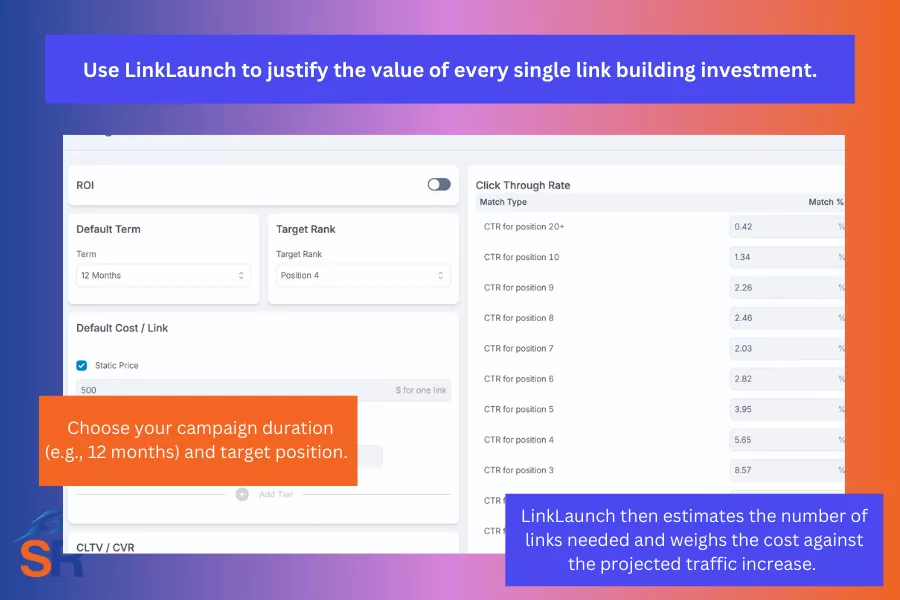
You can use LinkLaunch’s Click-Through Rate (CTR) Model to forecast potential traffic gains. It already has default CTR data by search position. From here, you can set a realistic ranking goal (e.g., position 4). LinkLaunch calculates how much traffic each position could deliver for your keyword.
Then, tie it all together with the cost per link and ROI by setting a fixed cost per link (e.g., $250) or using custom pricing tiers. Choose your campaign durations (e.g., 12 months) and target position. LinkLaunch then estimates the number of links needed and weighs the cost against the projected traffic increase.
SharpRocket’s Take on Link Launch:
Link Launch is incredibly useful to justify your link building investment or ask for increasing budgets to target more competitive keywords or sustain rankings. I recommend this for anyone doing SEO client work for agencies and enterprise SEO specialists who find it difficult to get approvals and buy-ins from stakeholders and defend links with data.
5. SmartLead (Free + starts at $39/mo)
There are many feature-rich and more popular outreach tools, such as Buzzstream and Pitchbox, which I personally tried and found to be highly useful for agencies and in-house SEO teams. Buzzstream is one of the simplest outreach tools, and Pitchbox is for scalable enterprise link-building campaigns with hundreds to thousands of link prospects.
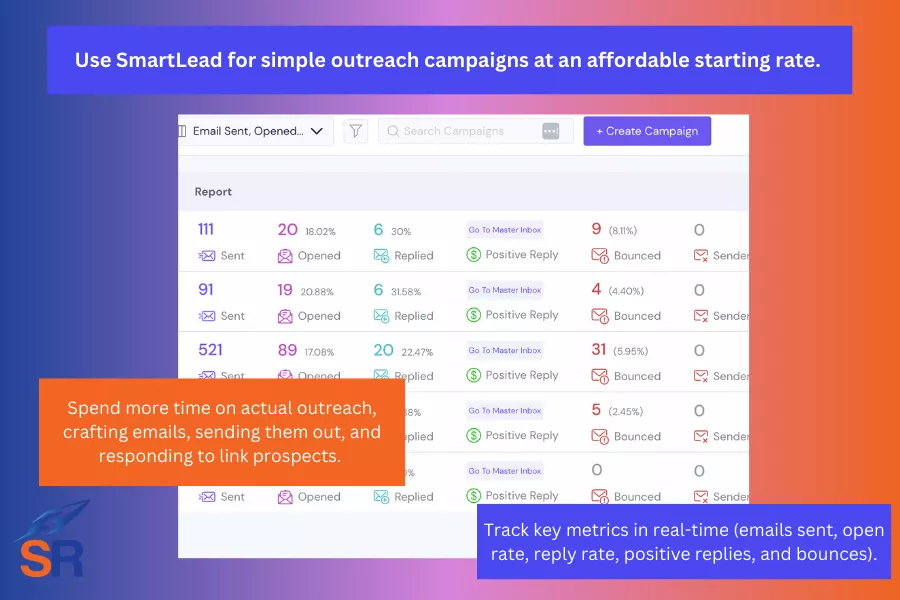
Among all these best outreach tools, our top pick is SmartLead, given its affordable pricing. It starts at $39/month for 6,000 emails per month, compared to Buzzstream’s $24/month price for 1,000 contacts. SmartLead makes it feasible for anyone starting outreach campaigns or just having 1 to 4 small-scale link building campaigns.
Rather than figuring out how the outreach tool works, the easy interface of SmartLead allows us to spend more time on actual outreach, crafting emails, sending them out, and responding to link prospects.
Given that it can track key metrics in real-time (emails sent, open rate, reply rate, positive replies, and bounces), we can assess the results of each outreach campaign, even run an A/B test to see which performs well and refine the campaign as we see fit.
6. SEMRush (starts at $139.95/mo)
If you’re only paying SEMRush for link building tasks, it’s not worth it, given that its immense value comes from non-link-building tasks such as competitive intelligence, keyword research, site audits, and content gap analysis.
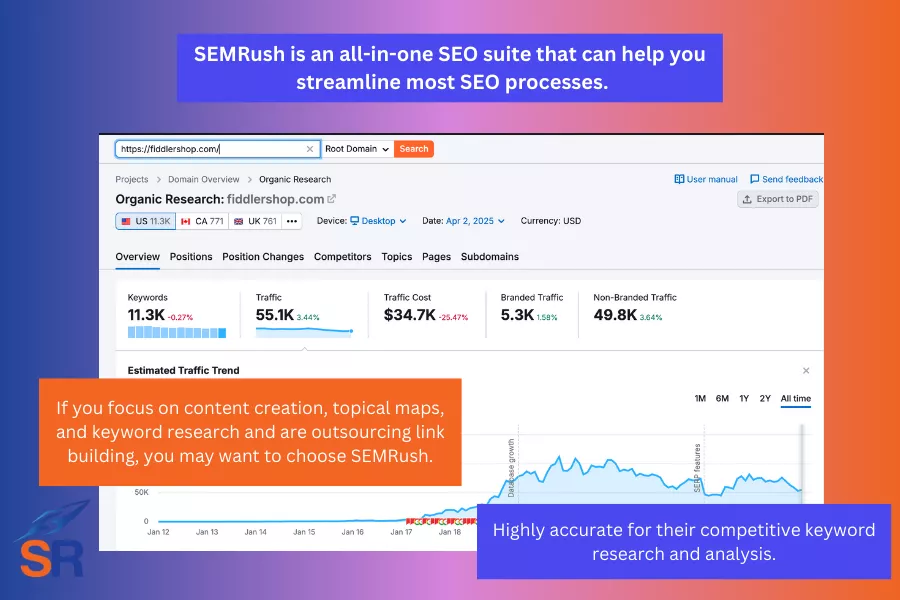
However, SEMRush is an all-in-one SEO suite that can help you streamline some of your processes, particularly in generating keyword ideas using actual data from your site, competitors, and other winning websites.
SharpRocket’s Take on Link Impact:
If most of your SEO work involves link building, consider Ahrefs. If you focus on content creation, topical maps, and keyword research and are outsourcing link building, you may want to choose SEMRush, as it is highly accurate for this competitive keyword research and analysis.
7. Grammarly (Free + $12/mo)
Grammarly is actually a writing assistant, but it has helped us improve grammar, clarity, tone, and originality. While those things can easily be achieved with basic communication skills, for link building and SEO specialists, Grammarly helps ensure you’re creating the highest-quality content possible, whether for writing guest articles, outreach emails, or internal content assets (guides, linkable assets).
Beyond its ability to assist in creating polished linkable assets, it helps to avoid duplicate content in guest posts by scanning them against billions of online sources to detect unintentional plagiarism.
Grammarly has been highly useful for outreach specialists in detecting the right tone, recommending softer or more direct alternatives, and tightening up long-winded sentences or awkward phrasing that could harm our outreach pitches.
SharpRocket’s Take on Link Impact:
Grammarly isn’t a direct link building tool, but it supports the vital process of content-led link-building campaigns: content ideation and editing. For teams producing content at scale, it adds a layer of quality control without slowing them down.
Which Tool Fits Your SEO Strategy?
The right tool depends on your campaign goals, team size, and, of course, budget. Below are helpful questions to help you decide what to use based on your specific SEO needs.
What Budget Do You Have to Work With?
If your budget is tight, free options like manual Google searches for link prospecting and limited versions of tools like Hunter.io can help you get started. These are best when you’re still learning the ropes or handling outreach in small volumes.
But once you’re scaling, investing in paid tools becomes necessary. So, tools like Smartlead, Buzzstream, or Pitchbox (for large enterprise link-building campaigns) can help automate outreach and follow-ups (saving hours of manual work).
For backlink analysis, investing in premium link intelligence tools like Ahrefs, MajesticSEO, or SEMRush is best to provide you with deeper data and better accuracy.
The bottom line is that if you’re serious about link building and want real results, it’s worth allocating part of your SEO budget to tools that increase speed, accuracy, and outreach success.
Are You Working Solo or with a Team?
You don’t need full team features if you’re a freelance or solo SEO specialist tasked with link building. You can use spreadsheets to help you organize your link prospects and outreach campaigns, which can take you far.
However, if you’re working with a team, whether for an agency or with multiple websites as an in-house SEO specialist, then collaborative tools become essential. Link building tools like Pitchbox and Buzzstream let you assign roles, manage conversations, and track multiple campaigns under one account, helping you avoid duplicated effort, inefficiencies it may, and missed follow-ups.
How Much Link Data Do You Need?
Not all backlink analysis tools offer the same depth. If you need detailed, thorough competitor backlink profiles and link intersect features, stick to major link intelligence tools like Ahrefs.
Cheaper tools may look appealing but often come with smaller link databases or outdated indexes, which can lead you to miss high-potential link opportunities.
Do You Need to Report Results?
Clean reporting matters when working with clients, stakeholders, or internal teams. It shows them that clarity matters. So, tools like Ahrefs, SEMRush, SmartLead, and Pitchbox offer built-in reports with visual summaries, link status updates, and campaign metrics.
If you spend hours building reports manually, switch tools with auto-reporting features (of course, you’ll make filtering with the exported data only show what matters).
See our link building services if you need help facilitating these link-building tools. We’ll do all the legwork for you. Book your strategy call.
Written By
Venchito Tampon
CEO and Co-Founder at SharpRocket, a link building agency. With a decade of experience, Venchito has a proven track record of leading hundreds of successful SEO (link builidng) campaigns across competitive industries like finance, B2B, legal, and SaaS. His expert advice as a link building expert has been featured in renowned publications such as Semrush, Ahrefs, Huffington Post and Forbes. He is also an international SEO spoken and has delivered talks in SEO Zraz, Asia Pacific Affiliate Summit in Singapore, and Search Marketing Summit in Sydney, Australia. Check out his other business - Hills & Valleys Cafe.
Reviewed By

Sef Gojo Cruz
COO at SharpRocket, overseeing end-to-end operations, from crafting link building strategies to leading high-performing teams. Previously led SEO initiatives at Workhouse, a digital agency in Australia, and Keymedia, a real estate media company based in New Zealand.
How our LINK BUILDING AGENCY in UK builds 250 links/mo consistently using Predictable Link Building Methodology™…
- Using a SIMPLE and PROVEN system
- Using a SCALABLE strategy
- No private blog networks
- No creepy outreach emails

